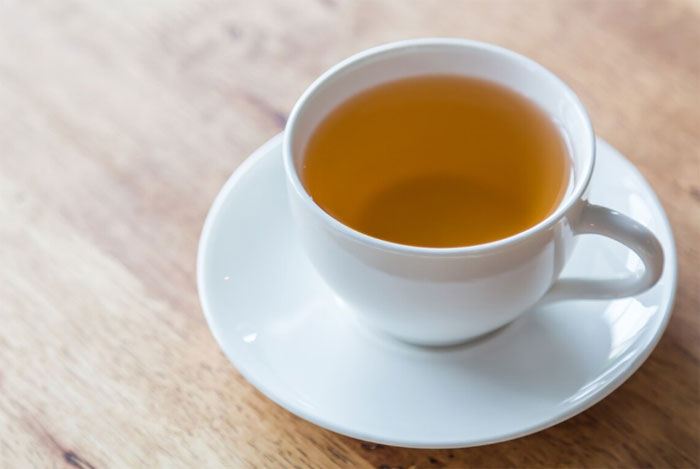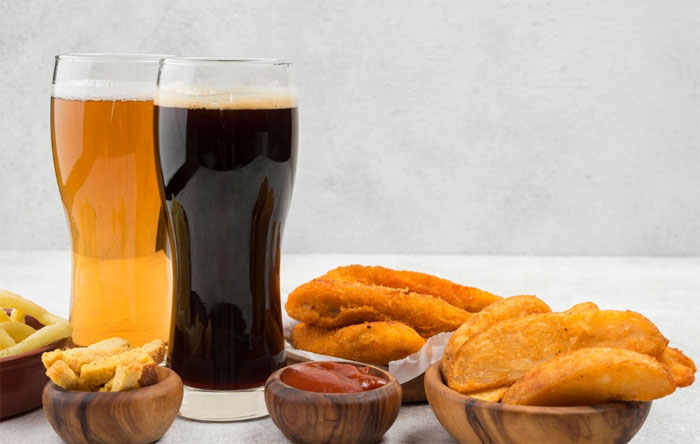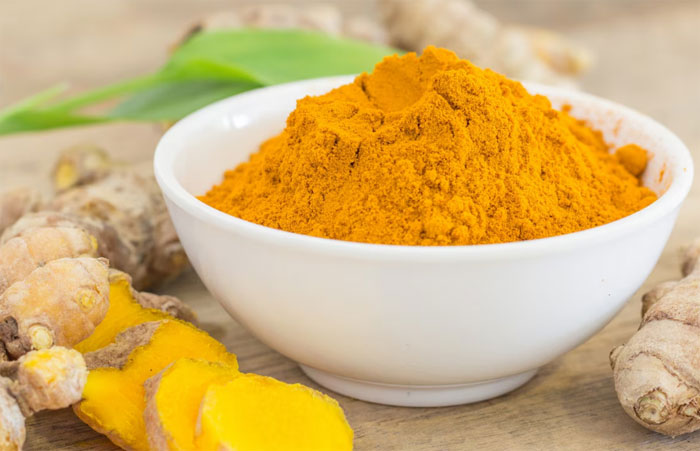Detox For Bloating: Say Goodbye To Gas

Feeling weighed down by gas and discomfort? You're not alone. Bloating is a common issue, often caused by trapped air or slow digestion. But you don’t have to suffer, simple dietary adjustments can bring relief fast.
According to Cleveland Clinic, constipation and poor digestion are major culprits. Beth Czerwony, RD, stresses the importance of fiber and hydration. These two work like a well-trained unit, fiber keeps things moving, while water ensures a smooth exit.
Your mission? Arm yourself with the right foods. Quinoa, greens, and herbal teas act as your frontline defense. Combine them with consistent hydration, and you’ll flush out stagnation like a pro.
Key Takeaways
- Bloating often stems from gas buildup and poor digestion.
- Fiber and hydration are critical for digestive health.
- Foods like quinoa and green tea help reduce discomfort.
- Regular bowel movements signal success.
- Simple dietary changes can provide quick relief.
Understanding Bloating and How Detox Can Help

That tight, uncomfortable feeling in your gut isn’t just annoying, it’s a signal. Your digestive system is under siege, often by trapped excess gas or sluggish digestion. When constipation strikes, waste lingers too long, fermenting and creating pressure. The result? A bloated belly that feels like a balloon ready to pop.
- Soluble fiber (quinoa, oats) acts like reinforcements, bulking up stool for smooth exits.
- Insoluble fiber (celery, leafy greens) sweeps through your bowel like a tactical unit, clearing blockages.
- Hydration is your secret weapon, water keeps everything moving. Without it, stool hardens, turning digestion into a logistical nightmare.
Recognize these symptoms early: abdominal pain, distension, or irregular bowel movements. They’re your body’s SOS. Ignore them, and the bloating battle escalates.
“Fiber and water work like a well-oiled machine. One softens, the other pushes, constipation doesn’t stand a chance.”
Beth Czerwony, RD
Ready to deploy your strategy? Arm yourself with the right tools, and your gut will thank you.
Top Foods for a Bloating Detox
Your gut is a battlefield, choose the right foods to win the war against discomfort. These nutritional allies deploy fiber, enzymes, and probiotics to clear your digestive tract and restore gut health.
Quinoa: The Fiber Powerhouse
Quinoa is your grain battalion. With 8g of fiber per cup, twice as much as most grains, it bulks up stool and mobilizes waste. Beth Czerwony, RD, confirms: "This gluten-free superfood keeps your system marching forward."
Pineapple and Papaya: Enzyme-Rich Fruits

Meet the enzyme strike team. Pineapple’s bromelain and papaya’s papain dismantle protein blockages, easing digestion. Add these tropical fruits to smoothies for a tactical advantage.
Yogurt and Fermented Foods: Probiotic Heroes
Reinforce your gut with probiotics. Yogurt and kimchi deploy beneficial bacteria to secure your digestive territory. A daily serving strengthens your microbiome like a well-trained platoon.
Celery and Cucumbers: Hydration Boosters
These hydration commandos are 95% water. Celery’s natural laxative, mannitol, and cucumbers’ high water content soften hardened waste. Crunch on them raw for a frontline defense.
“Food is your first line of defense. Choose wisely, and your gut will operate like a precision machine.”
Beth Czerwony, RD
Best Drinks to Reduce Bloating

Liquid reinforcements are on standby to combat digestive distress. The right beverages may help flush out gas, soothe irritation, and reboot your gut’s rhythm. Deploy them strategically, your mission is hydration with purpose.
Green Tea: The Swiss Army Knife of Teas
Green tea’s caffeine acts as a natural laxative, triggering peristalsis, your intestines’ marching orders. Beth Czerwony, RD, confirms: “It’s a gentle nudge for sluggish digestion.” Sip it warm to help reduce water retention and gas buildup.
Peppermint Tea: A Soothing Remedy
This herbal ally relaxes intestinal spasms like a frontline medic. A 2023 study found peppermint tea eases discomfort within 30 minutes. Drink it post-meal for rapid relief from digestive issues.
Kombucha and Kefir: Probiotic Beverages
Fermented drinks deploy probiotic paratroopers to secure your microbiome. Kombucha’s live cultures may help reduce swelling in as few as 10 days. Kefir, with 30+ bacterial strains, reinforces gut defenses daily.
“Your drink choices are tactical tools. Hydrate wisely, and your gut will operate like a precision unit.”
Beth Czerwony, RD
Hydration and Its Role in Bloating Relief
Dehydration is the silent enemy in your fight against digestive discomfort. When your system lacks water, waste stalls, and swelling takes hold. Your mission? Flood the zone with H2O to keep your digestive tract moving like a well-oiled machine.
Hydration warfare demands 8–10 glasses daily. Skip a round, and stool hardens, turning your gut into a battleground. Reinforcements? Watermelon (90% water), celery (95%), and cucumbers (96%). These are your aquatic artillery, softening waste for a swift exit.
For stubborn water retention, deploy magnesium. Isabel Smith, RD, confirms: “Epsom salt baths pull excess fluid from tissues, a soak-and-purge strategy.” Twenty minutes in the tub, and your body releases trapped liquid like a retreating tide.
“Think of water as your gut’s transport unit. Without it, nothing moves, and discomfort digs in.”
Isabel Smith, RD
Arm yourself with a water bottle. Sip steadily, target water-rich foods, and watch your system reclaim its rhythm. Victory over swelling starts here.
Lifestyle Changes to Complement Your Detox

Victory over discomfort requires more than just food, it demands tactical habits. Your digestive system thrives when supported by disciplined routines. Deploy these daily strategies to lock in gains and keep swelling at bay.
Eating Slowly to Avoid Swallowing Air
Rushed meals are a sabotage mission. Beth Czerwony, RD, warns: “Eating too fast forces air into your stomach, like an unplanned airborne invasion.” Counterattack by chewing each bite 20 times. Divide meals into smaller portions to minimize air intake.
Regular Exercise to Stimulate Digestion
Exercise mobilizes your gut’s ground forces. A 15-minute walk post-meal triggers intestinal contractions, per Cynthia Sass, MPH, RD. Think of it as a digestion drill, consistent movement keeps your body’s logistics running smoothly.
Mindful Eating Practices
Multitasking during meals? Stand down. Focused eating lets your gut process food without distraction. These practices help bloating by reducing stress-induced digestive slowdowns. Your mission: One bite at a time, full attention.
“Discipline in daily habits is the unsung hero of gut health. Master these, and discomfort retreats.”
Beth Czerwony, RD
Foods and Drinks to Avoid During a Bloating Detox

Certain foods and drinks act like saboteurs in your digestive system. They ambush your gut with excess gas, water retention, or fermentation chaos. Identify these enemies, and cut them from your rations.
Carbonated Drinks and Beer
Carbonated drinks are a frontline threat. Their bubbles trap air in your intestines, creating pressure. Beer doubles the assault, yeast ferments sugars, producing extra gas. Swap these for herbal tea or flat water.
High-Sodium Processed Foods
Chips and frozen meals recruit water retention insurgents. Sodium forces your body to hoard fluids, causing swelling. Check labels: >200mg per serving is a red flag.
Cruciferous Vegetables and Legumes
Broccoli and beans pack fiber but cause fermentation in sensitive guts. They’re Trojan horses, nutritious yet risky. Cook them thoroughly or pair with digestive enzymes.

“Eliminating dietary triggers is like defusing landmines. Step carefully, and your gut advances without explosions.”
Beth Czerwony, RD
Natural Remedies and Supplements
Your gut needs reinforcements, natural remedies stand ready. When diet alone isn’t enough, these powerhouse allies help reduce inflammation and gas. Deploy them strategically to reclaim comfort.
Ginger and Turmeric: Anti-Inflammatory Spices

Ginger oil and fresh root pack zingibain, an enzyme that breaks down proteins fast. Grate 1 inch into tea to scorch gut inflammation. Studies show it soothes abdominal pain in 30 minutes.
Turmeric’s curcumin is another warrior. It suppresses inflammatory signals like a general silencing chaos. Pair with black pepper to boost absorption, your gut’s covert ops team.
Digestive Enzymes and Magnesium
Enzyme supplements (papain, bromelain) blast through protein blockages. Kelly Schmidt, RD, confirms: “They’re like special forces for stubborn digestion.” Take them with meals for maximum impact.
Magnesium is your overnight relief. It draws water into the intestines, softening stool. A 400mg dose acts like a stealth mission, quiet but effective.
- Ginger oil: 1–2 drops in warm water fights gas on contact.
- Turmeric oil: Mix with coconut oil for gut-healing massages.
- Digestive enzymes: Target meat-heavy meals for backup.
“Natural remedies are your gut’s backup battalion. Deploy them wisely, and discomfort won’t stand a chance.”
Kelly Schmidt, RD
How to Monitor Your Progress
Tracking your gut’s response is like decoding a mission report, every detail matters. Cleveland Clinic confirms: A symptoms journal reveals enemy triggers. Document meals, reactions, and bowel movements. Patterns emerge, and your gut health strategy sharpens.
- Recon Log: Note every meal and reaction. Gas, cramps, or swelling? Flag the culprits.
- Bowel Cadence: 1–2 daily movements signal a clear digestive frontline.
- Territory Secured: A flat abdomen post-meals means your diet is winning.

Adaptive tactics: Rotate out suspect foods, dairy, gluten, or legumes. Test removals for 72 hours. If symptoms fade, you’ve found a saboteur.
“People who track their gut responses unlock faster relief. Data doesn’t lie, it liberates.”
Beth Czerwony, RD
Stay disciplined. Adjust your tactics. Soon, you’ll feel better and command your gut like a seasoned general.
When to Seek Professional Help

Your gut sends distress signals, don’t ignore them. Cleveland Clinic warns: blood in stool or pain lasting over 72 hours are red flags. These symptoms mean it’s time to deploy medical reinforcements.
Medevac Required: Vomiting with bloating? That’s a tactical emergency. Nicole Lindel, RD, stresses: “IBS or IBD needs expert oversight, self-diagnosis risks collateral damage.” Specialists pinpoint the cause like a sniper locking onto a target.
- Intel Brief: Food intolerance tests expose hidden enemies, lactose, gluten, or FODMAPs. Eliminate them, and your gut health recon mission succeeds.
- Allied Support: Dietitians and GIs draft strategic maps for chronic bowel syndrome battles. They arm you with protocols, not guesswork.
“Waiting for severe abdominal pain to pass is like ignoring a ticking bomb. Call for backup, your gut deserves it.”
Nicole Lindel, RD
Track your symptoms like a mission log. If home tactics fail, escalate. Your health isn’t a solo mission, it’s a coordinated strike.
Conclusion
You’ve armed yourself with the tools to reclaim control over your body. Fiber, hydration, and strategic food choices form your frontline defense. Now, it’s time to execute.
Stay sharp. Avoid carbonated drinks and rushed meals, they’re saboteurs in disguise. When discomfort strikes, deploy peppermint tea or ginger for quick relief.
Your system thrives on consistency. Keep tracking progress, adjust tactics, and celebrate small wins. Victory over gas and swelling is within reach.
Stay disciplined. Your gut will thank you.
FAQ
What causes bloating?
Excess gas, water retention, or slow digestion can trigger discomfort. Common culprits include processed foods, carbonated drinks, and eating too fast.
How can certain foods help reduce bloating?
Fiber-rich quinoa, enzyme-packed pineapple, and probiotic yogurt support gut health, easing digestion and cutting down on gas.
Are there drinks that combat bloating?
Yes! Green tea, peppermint tea, and kombucha aid digestion, reduce inflammation, and balance gut bacteria for relief.
Why is hydration important for bloating?
Water flushes excess sodium, prevents constipation, and keeps your digestive system running smoothly, key for reducing discomfort.
What lifestyle changes help with bloating?
Eat slower to avoid swallowing air, exercise regularly to stimulate bowel movements, and practice mindful eating to improve digestion.
What foods should I avoid?
Skip carbonated drinks, salty snacks, and gas-producing foods like beans and broccoli, they worsen symptoms.
Do natural remedies work?
Ginger, turmeric, and magnesium supplements can reduce inflammation and support gut health for faster relief.
When should I see a doctor?
If bloating persists with severe pain, weight loss, or blood in stool, seek professional help, it could signal a deeper issue.





